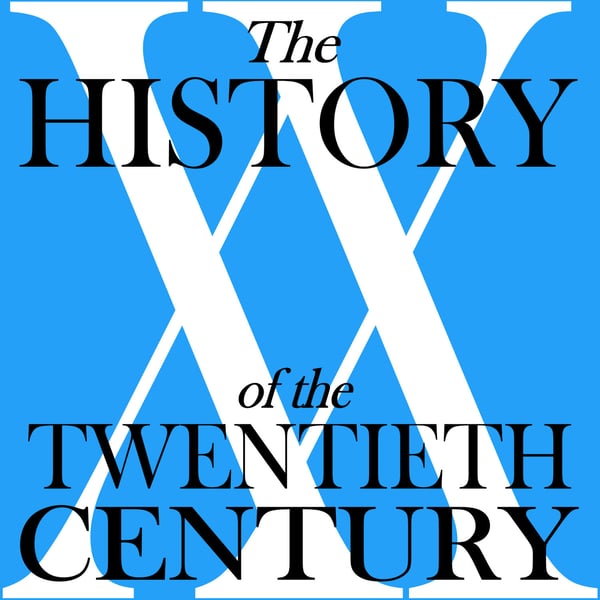248 Darwin's Dilemma
The History of the Twentieth Century
Mark Painter
4.8 • 719 Ratings
🗓️ 8 August 2021
⏱️ 51 minutes
🧾️ Download transcript
Summary
Charles Darwin himself noted that the development of civilization had "stopped" evolution by natural selection within our own human species. This led others to speculate on whether society could purposefully direct human evolution.
Transcript
Click on a timestamp to play from that location
| 0:00.0 | Charles Darwin revolutionized the science of biology. |
| 0:24.7 | But outside of that field, much of the discussion of his theory focused on human origins. |
| 0:32.1 | But a few people began to wonder what his theory meant for human destiny. |
| 0:39.7 | Welcome to the history of the 20th century. |
| 0:43.3 | The 20th century. Episode 248, Darwin's Dilemma. |
| 1:15.9 | Charles Darwin published his landmark treatise on the origin of species in 1859. |
| 1:23.3 | In that work, he mostly avoided discussing the implications of his theory of evolution by natural selection |
| 1:29.9 | for understanding the origins of human beings, except for a brief bit at the end. |
| 1:37.1 | But the implications were clear enough, and one of the first people to pick up on them was Francis Galton, |
| 1:45.9 | a scientist and thinker, |
| 1:49.2 | fellow Englishman, and in fact Darwin's cousin. |
| 1:56.1 | Galton studied phenomena in many different fields, but of interest to us today is how, on the origin of species, inspired him to investigate the inheritance of physical and mental abilities among human beings. |
| 2:05.5 | To study this question, Galton looked for ways to tease apart the effects of ancestry versus the |
| 2:12.1 | effects of upbringing in the abilities of a human being. He was in, the first person to use the phrase nature versus nurture to describe this distinction. |
| 2:23.3 | He took particular interest in twins and in adopted children as ways of testing the effects of nature versus nurture, |
| 2:31.7 | which researchers still do in our day. |
| 2:36.5 | There was only so much Galton could do, given the research tools of the time, but he concluded |
| 2:42.6 | from his evidence that physical and mental traits in humans did indeed seem to be passed |
| 2:47.8 | on from parents to children. When his cousin, Charles Darwin, tackled the subject of human evolution in his 1871 follow-up, |
| 2:56.5 | the descent of man, he drew on Galton's work. |
| 3:01.2 | Darwin also argued in that book that the advent of civilization meant that in some sense |
| 3:06.6 | human evolution had stopped |
... |
Please login to see the full transcript.
Disclaimer: The podcast and artwork embedded on this page are from Mark Painter, and are the property of its owner and not affiliated with or endorsed by Tapesearch.
Generated transcripts are the property of Mark Painter and are distributed freely under the Fair Use doctrine. Transcripts generated by Tapesearch are not guaranteed to be accurate.
Copyright © Tapesearch 2025.

